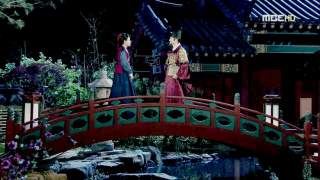Can South Korean TV Shows Really Bring Change to North Korea?
Smuggled dramas have great resonance in the repressive culture of the North—and could even be subversive.
All this talk of Korean traditional values and hidden ideological subtexts may seem rather beside the point to some readers. Surely the sight of South Korea’s wealth—its neon lights, overstocked supermarkets, functional indoors plumbing, etc.—sends a far more powerful message? What North Korean viewer, seeing all the riches of the democratic South, wouldn’t want to overthrow the Kim dynasty?
We must remember that North Koreans have not grown up with democracy or the idea of political mobilization as a means of achieving desired social change. Decades of propaganda have taught them that liberal reform is only a road to ruin, something that the hated U.S. keeps trying to impose on North Korea in order to control it. Even if some are inspired to dream of political change after watching South Korean dramas, they are no closer to solving the collective action problem of finding masses of like-minded individuals willing to take the risk; the forbidden dramas must be watched in secret, and never discussed in public. It is far easier, and less of a deductive leap, simply to defect. Even in democratic societies, it is human nature to want to move to where the grass appears greener. It is a rare individual who resolves instead to work on improving the grass under his own feet.
To be sure, a rising tide of defections could eventually have a destabilizing effect on the Kim regime. Kim Jong-un seems to have recognized this threat when he imposed a major crackdown on illegal border-crossing in 2012. Interestingly, it appears that the regime has made little serious effort to crack down on the viewing of South Korean dramas, which are now reportedly a favorite clandestine activity among children of the elite. Rather than take the unpopular (and probably logistically impossible) step of eliminating imported dramas, the regime has long since adapted its propaganda to conform with the images portrayed therein. They’ve stopped printing stories about South Koreans living in filthy slums or under bridges, selling their organs for a bowl of rice. The regime grudgingly admits that South Korea is prosperous, but its prosperity has come at a price.
Prolific North Korea analyst Andrei Lankov put it best: “With all its wealth, South Korea is represented as basically a very unhappy place. The reason for this unhappiness is that South Koreans’ national identity, their precious ‘Koreanness,’ has been spoilt and compromised by the domination of American imperialists who propagate their degrading and corrosive ‘culture.’”
More recent defectors no longer express as much amazement at South Korea’s prosperity; indeed, many of them expect to see more lavish residences and lifestyles after years of watching dramas about chaebol billionaires. What surprises them most, in repeated interviews, is the intensity of competition at all levels, particularly in education. Thanks to clandestinely viewed dramas, most North Koreans are now aware that South Korea is a country with great material wealth and the accompanying vices. What they do not know is that the South is also a place where, occasionally, some talented and industrious individuals have managed to attain great status and prosperity without being the scion of a chaebol family (or dating one).
Now that would make a compelling drama.
Meredith Shaw is a PhD candidate in Political Science and International Relations at the University of Southern California. She previously worked as a research associate at the Korea Institute for National Unification.
Image: Flickr/@withhyunbin

